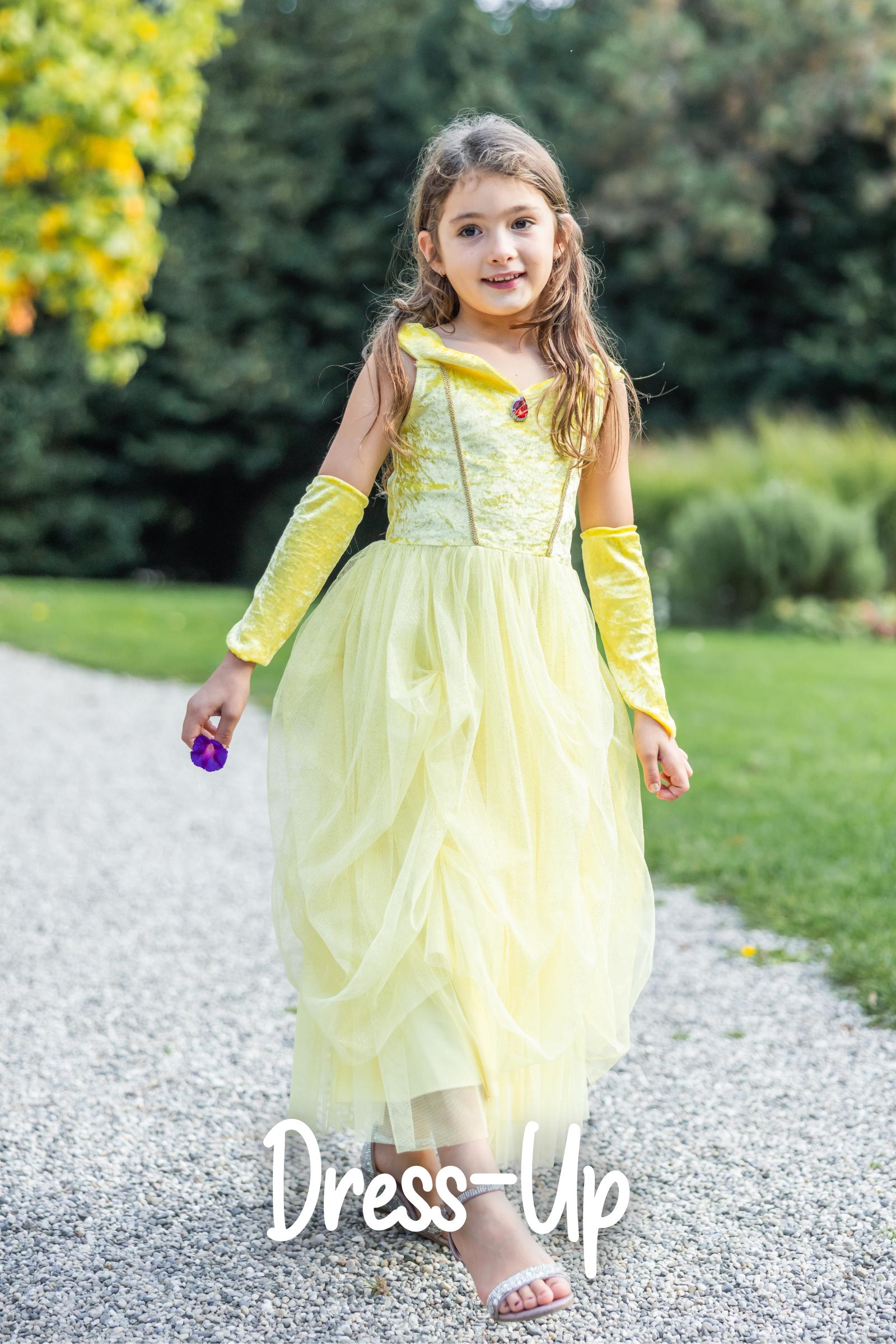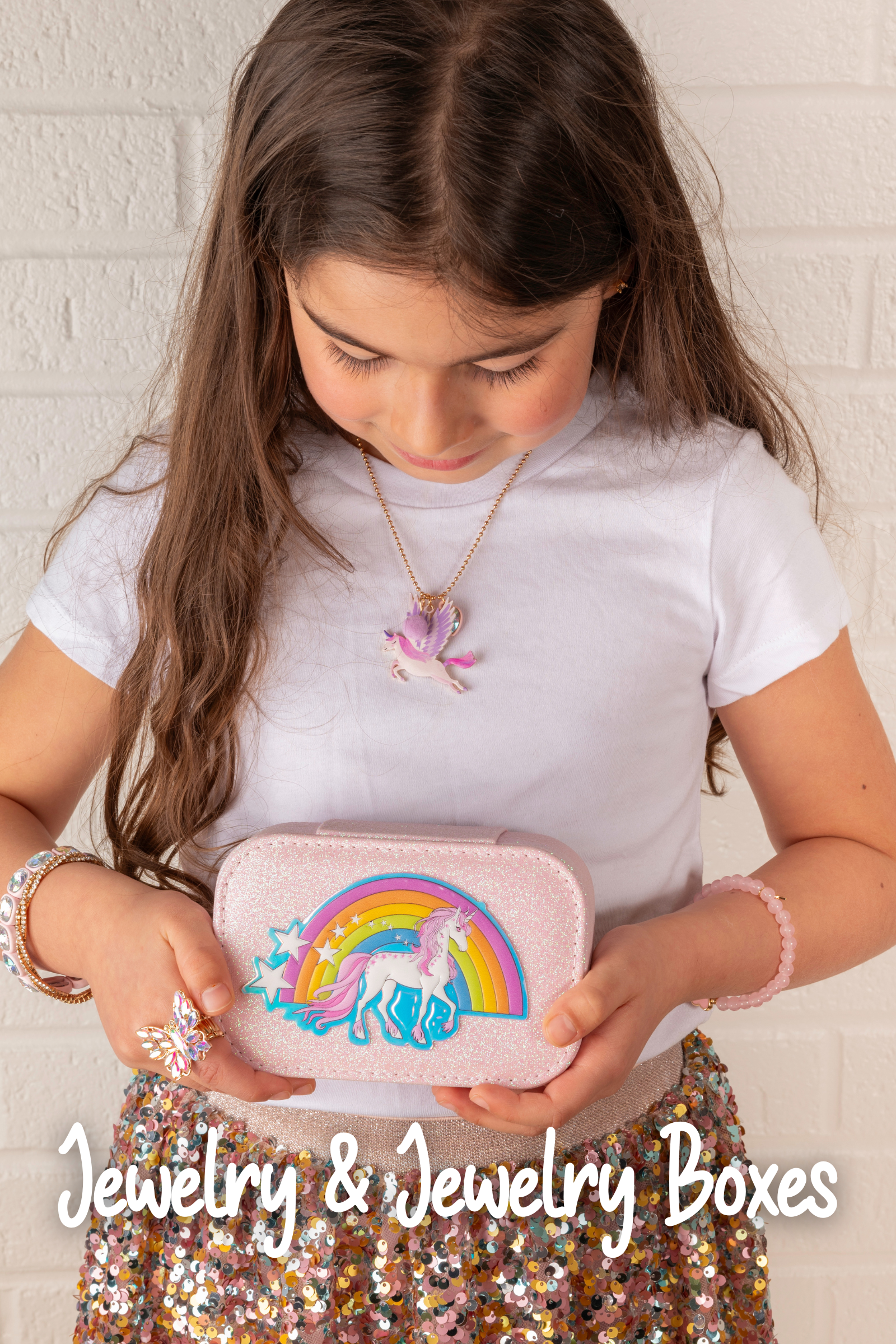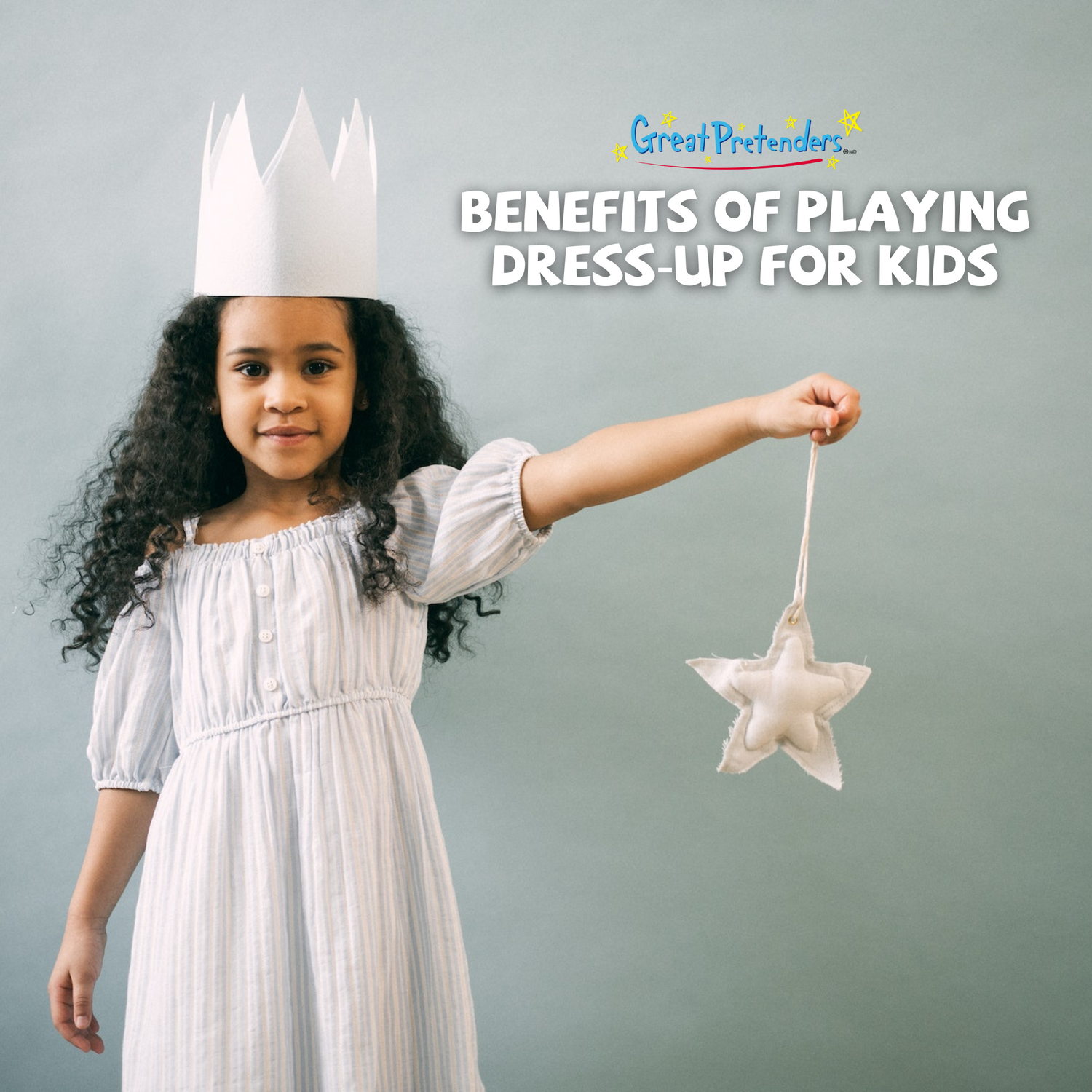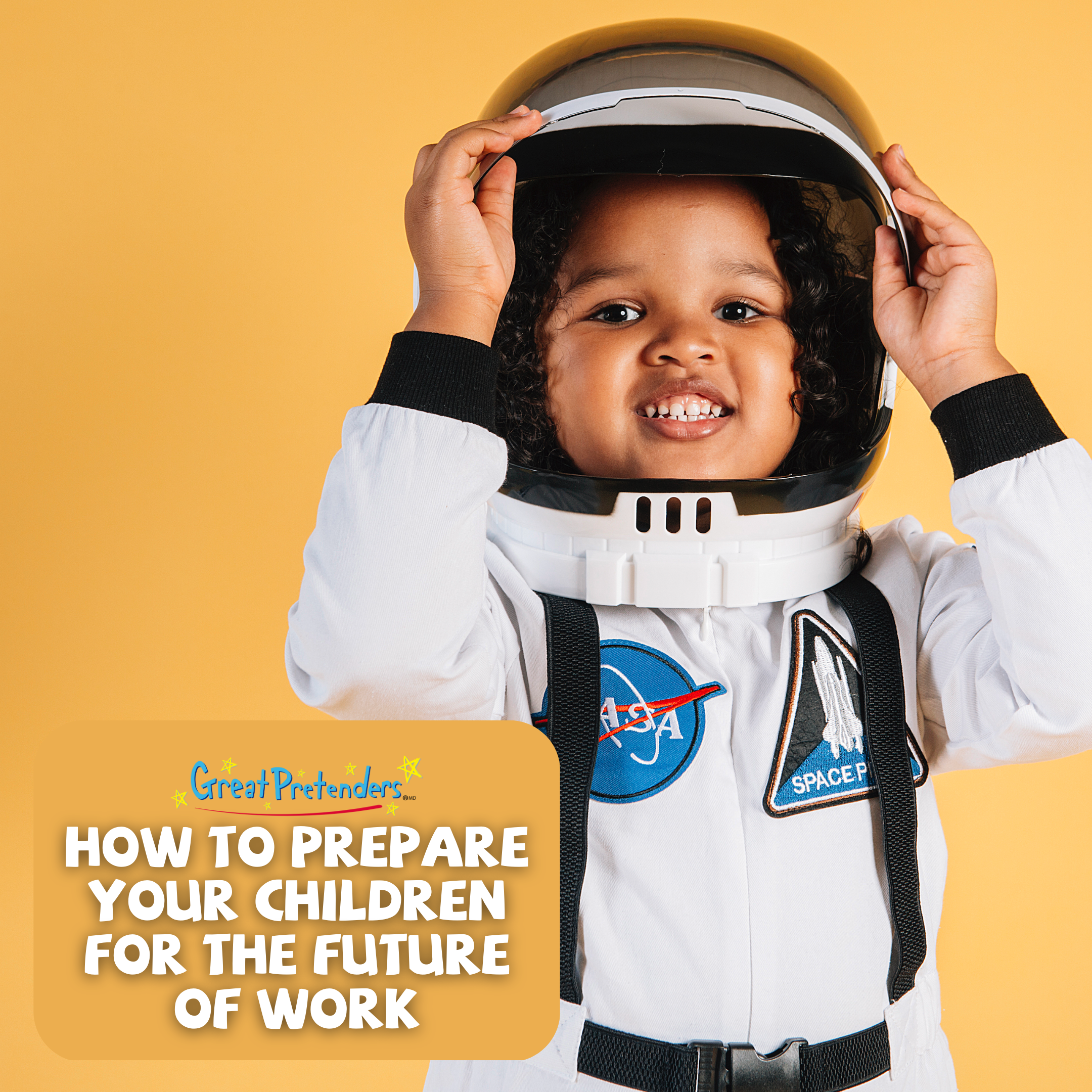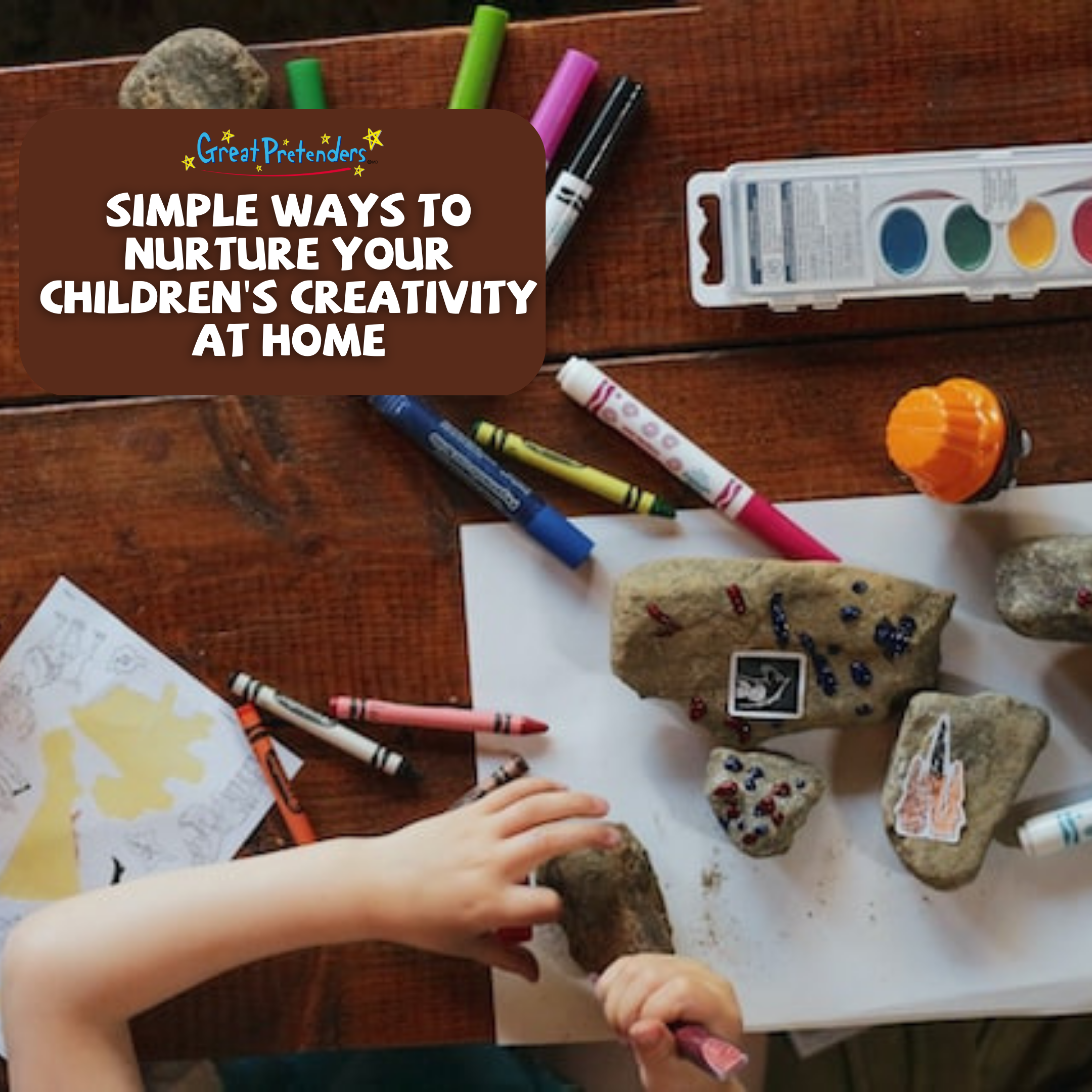
Are you trying to think of a beneficial and entertaining activity for your kids? Dress-up games are a great choice! After all, playing dress-up is a favorite pastime for kids of all ages, and for a good reason. It offers several advantages for your child's growth in addition to being a pleasant way to stimulate their imagination. In this article, we'll examine the several benefits of playing dress-up for kids, from improving language and creative thinking to fostering confidence and empathy. Let's dive in and learn more about this incredibly beneficial and fun activity!
Encourages Creativity
An important part of a child's cognitive and emotional development is creativity. Children can be encouraged to utilize their creativity in a variety of ways through dress-up play and exploring various characters and situations. They may also improve their artistic abilities, such as sketching, painting, and crafts, through this kind of play (if they help create their own costumes). Even a pair of wings can spark endless opportunities for creative play. Whether they're pretending to be a superhero, a doctor, or a chef, dress-up play encourages children to use their imaginations and express themselves in fun and exciting ways. So, embrace your child's creativity and let them explore the endless possibilities of dress-up play.
Builds Confidence
As a parent, you know that building your child's confidence is vital for their growth and development. Some children may struggle with low self-esteem or self-worth, which can affect their overall well-being. Fortunately, dress-up play is a fun and beneficial activity to help children develop their confidence. By pretending to be different characters, children can explore their interests and strengths, leading to a greater sense of self-awareness and self-assurance. As a result, they can learn to take risks, make decisions, and communicate their ideas effectively.
To support your child's confidence during dress-up play, try offering positive feedback and praise, listening to their ideas, and letting them take the lead. Dress-up play can also help children overcome shyness and social anxiety by providing a safe and imaginative space to interact with others. This is one of the most important benefits of playing dress-up for kids since it can help shape them into more assured people ready to make their dreams come true.

As a superhero, your kid can save the world and build confidence!
Reduces Stress
Children can experience stress and anxiety just like adults, sometimes even more intensely. However, dress-up play can provide a healthy outlet for children to release their emotions and reduce their stress levels. Furthermore, dress-up play can help children practice mindfulness by encouraging them to be present and focus on their feelings. This is especially important during times of transition or change, such as moving to a new home. To keep kids occupied while moving and make moving fun for them, consider incorporating dress-up play into the process. This can also be a great way to keep kids occupied while moving so other adults can focus on making the rest of the transition as smooth as possible. Consider incorporating soft lighting, soothing music, and comfortable clothing to create a calming environment for dress-up play.
Enhances Language Skills
Language skills are crucial for a child's development, and dress-up play is an excellent way to enhance them. During dress-up play, children can expand their vocabulary and comprehension skills by learning new words and phrases related to their costumes. Additionally, dress-up play can help children develop their reading and writing skills by inspiring them to create their own stories and scripts. To encourage conversation and storytelling during dress-up play, you can ask open-ended questions or provide props to spark their imagination. Moreover, dress-up play can also help children learn new languages or improve their second language skills by immersing them in a new cultural context. With improved language skills, children can communicate more effectively, express themselves confidently, and have a brighter future.

Among the benefits of playing dress-up for kids, learning to talk in different situations can help.
Develops Social Skills
As children grow up, they develop their personalities and preferences. For some children, socializing and making friends can be challenging. This is where dress-up play can be a great tool for developing social skills. Dress-up play allows children to take on different roles and practice social interactions in a safe and fun environment. Dressing up as a doctor, dentist, or firefighter (for example) can also help children learn about different careers and foster an interest in various fields. Moreover, it may make them behave better and be less scared whenever they need to visit the doctor's office.
And lastly, when children engage in dress-up play with their peers or siblings, they develop important social skills such as cooperation, communication, and conflict resolution. Encouraging children to take turns, share props, and work together on imaginative scenarios can help build teamwork and collaboration skills essential in everyday life. By developing these skills through dress-up play, children can gain the confidence and leadership skills necessary to succeed in future social situations. And, as you can tell, the benefits of playing dress-up for kids extend far beyond just having fun.
Increases Empathy
Empathy is a vital skill for children to connect with others and build healthy relationships. However, it's not always easy to teach. Dress-up play can help children learn empathy by allowing them to see the world from different perspectives. Through dress-up play, children can practice putting themselves in others' shoes, recognizing and understanding emotions, and practicing active listening and validation. To encourage empathy during dress-up play, try asking your child how they think their character is feeling.
On the other hand, you may ask them what they think their character is experiencing. This way, they will have to truly put themselves in someone else's shoes. Additionally, you can also use dress-up play as an opportunity to talk about emotions and how different situations might make people feel. With practice, dress-up play can help your child develop a greater understanding and appreciation of others, enhancing their empathy.

It's Fun!
Fun is not only a child's right but also their need. It may seem as though it's just about entertainment, but it is much more than that. Play is an essential part of child development and contributes to their mental, physical, and social growth. Dress-up play is a perfect example of how having fun can be incredibly beneficial for your child since there are so many benefits of playing dress-up for kids. Children can be anything they want, from a scary dinosaur to a ballerina, and the possibilities are endless. Therefore, it's no wonder children love playing dress-up so much. Dress-up play can also be an enjoyable and engaging way for children to learn and grow. This makes it a win-win situation for both you and your child. With some simple props and costumes, dress-up play can turn into a fun and exciting activity that can be enjoyed by the whole family or even friends during social gatherings. So, get ready to grab some costumes or create your own, and let your child's imagination run wild!

